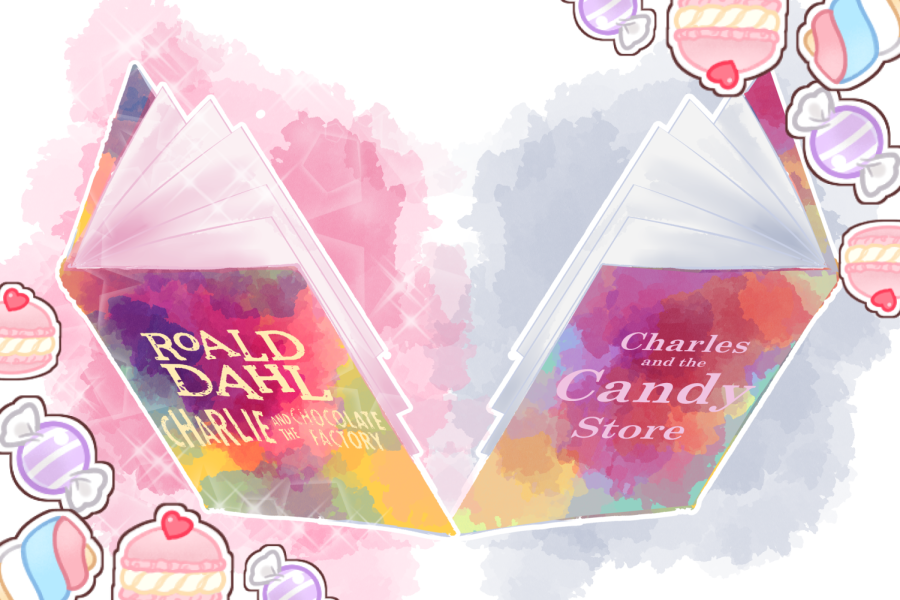Why publishers should not be issuing rewrites
DUELING WORLDS: The many revisions caused by an attempt to conform with mainstream culture has left some wondering whether the integrity of the original work still remains.
April 13, 2023
On Feb. 20, the literary world was shocked when the Roald Dahl Story Company and Puffin Books Publishing released its newest editions of Roald Dahls’ childrens classics—such as “Charlie and the Chocolate Factory” and “James and the Giant Peach”—which featured absurd rewrites to facilitate what some may call ‘political culture.’
Character titles including “mother” and “father” were replaced with non-gender associated phrases such as “parents,” and references to Augustus Gloop as “fat” were completely removed from the novel. Oompa Loompas, who were formally described as “small men” were now to be written as “small people.”
In our current social climate, it has become increasingly important to be mindful of one’s expression and use accurate pronouns and titles. However, classic novels should not be rewritten without proper consideration of its content or the full consent of the original author. Books aren’t written to age with society; they are representative of the author’s message and period of history in which they lived, and it must stay that way.
In essence, rewriting novels with inaccurate representation is just as harmful as leaving the original words. In “Charlie and the Chocolate Factory,” Augustus was not labeled as “fat” for the sake of being the token obese character; his character was representative of gluttony, which is one of the Seven Deadly Sins. Dahl had clearly intended for Augustus to be a mirror that revealed larger issues in our society.
All stories have been crafted with intention–and within a novel, individual characters are developed in order to prove the author’s purpose. Every word constitutes the writer’s style and specific diction is chosen to create a point. By erasing the important aspects of the characters, the integrity of the writing becomes lost.
Spanning beyond the incident with Dahl, literary censorship has long been a heavily debated topic. Politics are a frequent driving force as heavily conservative views typically call for change, but recent acts of rewriting have been rooted in progressive political culture.
Particularly in novels that are presented in nationwide education, the question left unanswered is where the line is drawn.
Take Mark Twain’s timeless classic “Adventures of Huckleberry Finn” as an example. The novel was rewritten to feature the word “slave” as opposed to the N-word. Despite the good intentions behind this change, the definition of slave is entirely inaccurate to the story and the connotation provides a significantly different meaning than Twain’s original text.
Within a week after the announcement of their changes, Puffin Books pulled back and agreed to continue releasing unedited, original copies of Dahl’s books. While this speaks heavily to the absurdity of the changes, it proves an even greater point—one about the power of voices and how the public can fight to maintain the integrity of great literary works.
Even when we disagree with the actions of human history, there is no taking back the past. Historical documents and statements are not rewritten to match the modern political climate because it would be an inaccurate representation of the world, and this same standard must be held for literature as well.



![AAAAAND ANOTHER THING: [CENSORED] [REDACTED] [BABY SCREAMING] [SIRENS] [SILENCE].](https://thehowleronline.org/wp-content/uploads/2025/06/lucy-1200x800.jpg)






















































![AAAAAND ANOTHER THING: [CENSORED] [REDACTED] [BABY SCREAMING] [SIRENS] [SILENCE].](https://thehowleronline.org/wp-content/uploads/2025/06/lucy-300x200.jpg)